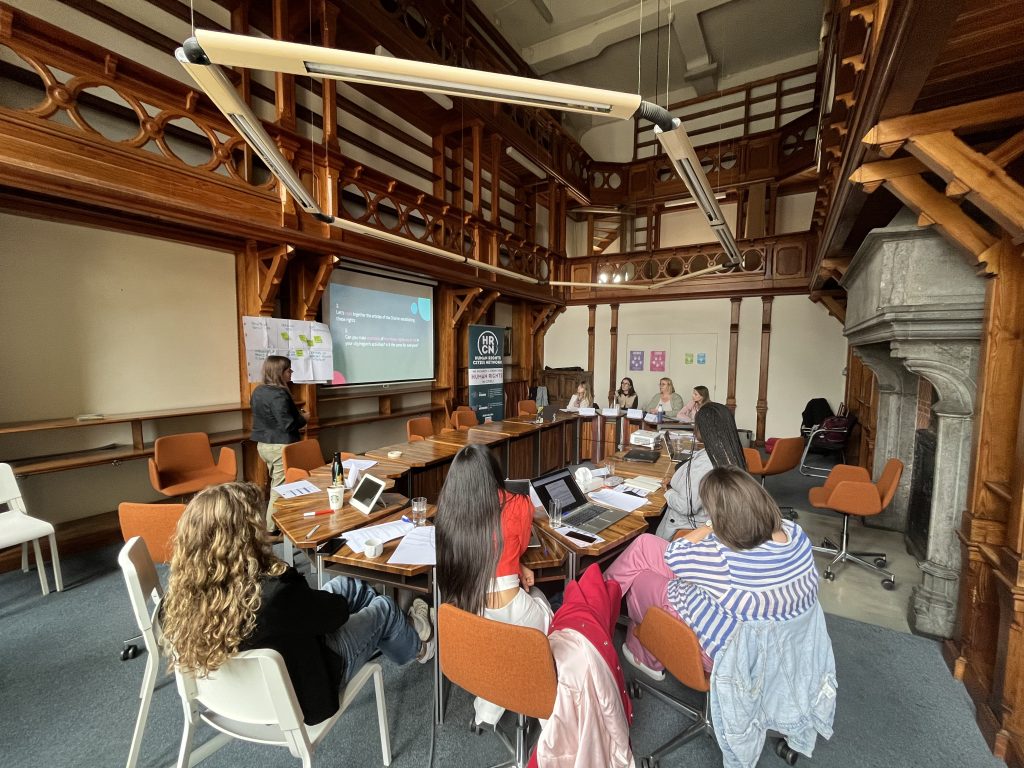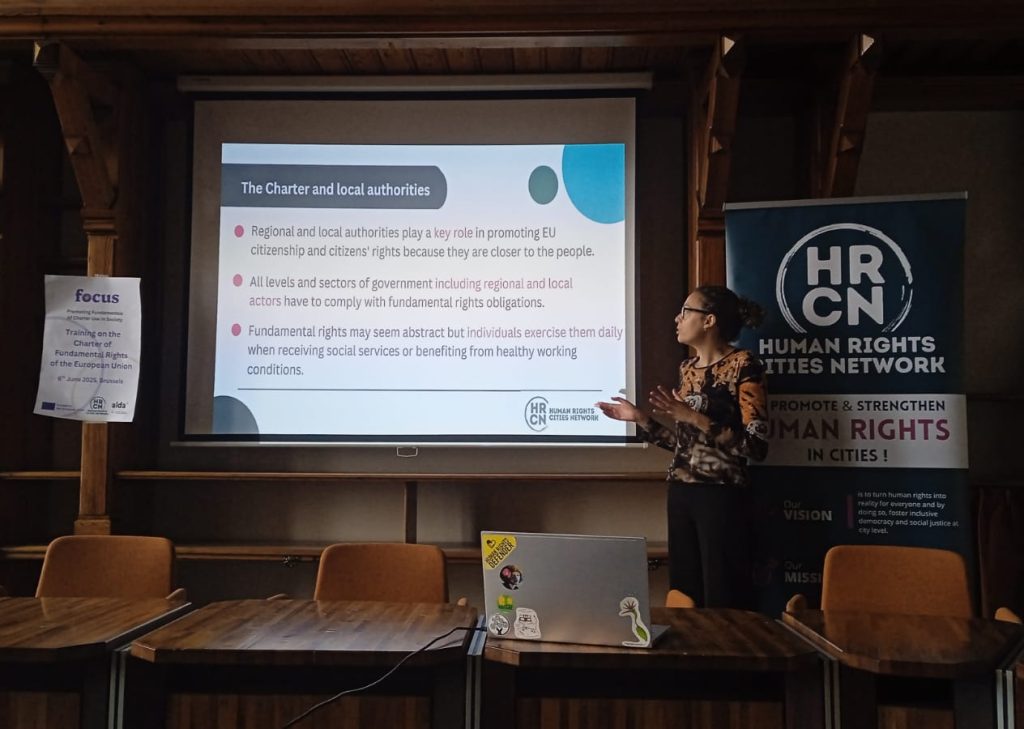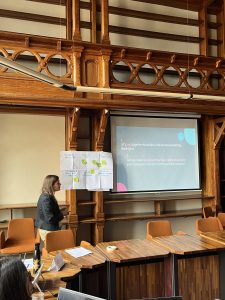The Human Rights Cities Network (HRCN) organised a training in the Town Hall of Brussels, on 6 June 2025, for participants from the Brussels Capital Region and the City of Brussels as part of the EU-funded FOCUS project.
The aim was to strengthen the city’s ability to protect and promote fundamental rights through the EU Charter of Fundamental Rights. The session brought together local actors to examine the Charter’s relevance to municipal governance and to identify practical ways to apply its principles at the local level.
The training provided participants with an overview of the Charter, specifically on its origins, the rights it covers, and how it differs from other human rights instruments such as the European Convention on Human Rights. Participants discussed where the Charter can offer stronger or more specific protections, and how it can be implemented.
A key part of the session involved identifying rights that participants felt were most at risk in their local contexts. Following discussion, the group selected four priorities:
- the right to marry and found a family,
- non-discrimination,
- integration of persons with disabilities, and
- protection of personal data.
Participants were also introduced to the concept of Human Rights Cities and the Fundamental Rights Agency’s guideline for cities working towards becoming one. Practical examples and recommendations were shared on how to promote and protect rights at the local level. A participatory approach to monitor human rights in cities was also presented, with reference to the HRCN’s methodology adopted in the DeCiDE project.
The training included a workshop session where participants were divided in groups focusing on the selected rights at risk in their local context. Their task was to explore how local authorities could strengthen protection in the areas of the right to marry and found a family, protection of personal data, integration of persons with disabilities, and non-discrimination. This collaborative activity allowed the participants to ground fundamental rights, which sometimes are treated abstractly, to real life situations. As a result, they were able to better understand how rights are impacted by local policies and decisions.
One participant shared that Belgian municipalities have the authority to deny marriage applications, particularly when there is suspicion of a so-called “marriage of convenience.” However, this process can be arbitrary and influenced by personal or systemic bias, leading to discriminatory outcomes. This underscores how local administrative decisions can have profound and life-altering consequences. To combat this, the participants suggested that collecting and analysing data on couples undergoing these checks could reveal discriminatory patterns and rights violations. They also recommended training municipal officials on racism and bias to promote more impartial and informed decision-making.
A challenge that emerged throughout the day was how to localise the EU Charter. While participants were able to identify vulnerable rights, translating the Charter into concrete, local-level actions was more difficult. The protection of personal data and the provision of social security were identified as important rights enshrined in the Charter that are difficult to address at the local level because they are under national jurisdiction. For example, participants noted that social assistance such as unemployment benefit policies are managed by the Belgian government, so the municipalities are limited in how they can support their constituents. However, municipalities still play an important role in being a safety net against restrictive government policies.
The participants shared that the training gave them a clearer and more practical understanding of the EU Charter of Fundamental Rights, particularly in how it differs from other instruments like the European Convention on Human Rights. For many of the participants, this was their first opportunity to explore how the Charter directly relates to local policies and decisions. By grounding abstract principles in real-world local challenges, the session underscored how everyday decisions, such as handling data protection or assessing marriage applications, can either uphold or erode fundamental rights.
 The training provided a valuable space for discussion and reflection. It was an important step toward integrating a human rights-based approach into the participants’ work in the municipality, leading to tangible benefits such as more inclusive local policies, fairer administrative procedures, improved trust between residents and local authorities, and better protection of vulnerable groups. For municipal actors, it also enhanced their ability to identify rights risks, comply with legal obligations, and deliver services in a more equitable and transparent manner. As more cities commit to becoming inclusive and rights-based, these kinds of capacity-building efforts are essential for turning commitments into action.
The training provided a valuable space for discussion and reflection. It was an important step toward integrating a human rights-based approach into the participants’ work in the municipality, leading to tangible benefits such as more inclusive local policies, fairer administrative procedures, improved trust between residents and local authorities, and better protection of vulnerable groups. For municipal actors, it also enhanced their ability to identify rights risks, comply with legal obligations, and deliver services in a more equitable and transparent manner. As more cities commit to becoming inclusive and rights-based, these kinds of capacity-building efforts are essential for turning commitments into action.





